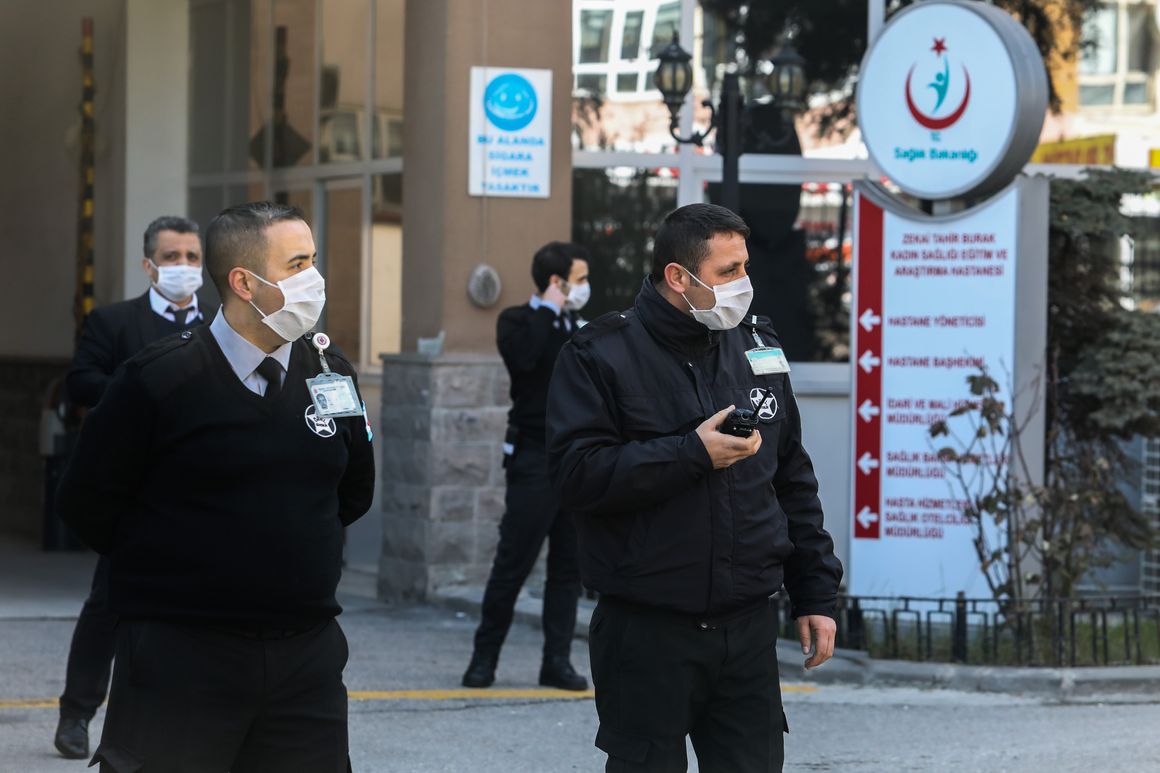
But the culture of disease prevention and transparency in Iran began to change with its formal membership in the International Office of Public Health, a precursor to the World Health Organization, in 1908. With international technical assistance, including the supply of equipment and scientific know-how, and a more stable government, Iran developed a more accountable public health and disease reporting system in the decades that followed.
Iran’s progress became apparent when a new El-Tor strain of pandemic cholera entered the country in 1965. Soon after the contagion crossed into Iran, the ministry of public health conveyed the bacteriological profile of the outbreak to the WHO, which immediately sent an expert to help establish a central reference laboratory in Tehran to type and confirm El-Tor cases as they emerged in the country. Like the coronavirus, the microbe was particularly virulent and difficult to contain due to its hardiness and high rates of asymptomatic infection that did not result in illness but could still transmit the disease. To halt its spread, the Iranian government rapidly mobilized its sizable public health workforce to quarantine affected areas and closed its borders to countries that risked reintroducing the disease. Infected individuals were identified through laboratory analysis and treated with a powerful broad-range antibiotic supplied by the United States. Shiite pilgrims and others who were determined to be at a higher risk of being infected were similarly obliged to undergo the prophylactic treatment.
The U.S. Agency for International Development and the Peace Corps were key players in building Iran’s public health workforce and infrastructure at that time. As a matter of fact, Congresswoman Donna Shalala was one of the many Americans working on educational and infrastructural projects as a Peace Corps volunteer in southern Iran from 1962 to 1964. The French Pasteur Institute, which continues to have a campus in Iran, helped to build the country’s vaccine production capabilities. This allowed the Iranians to rapidly develop a new vaccine against the 1965 cholera pandemic that was two times more potent than its American counterpart, and institute a compulsory national vaccination campaign that did not spare high officials or members of the royal family. These interventions largely limited the cholera outbreak to Iran’s eastern half and, after several months, extinguished the epidemic altogether, earning the Iranian government accolades from the WHO for its effective interventions.
The Iranian Revolution in 1979 replaced the American-allied secularizing dynasty, which had led the country during its period of public health modernization after the World War I, with an unfriendly theocracy. The ensuing E.S. embassy hostage crisis in Tehran brought an abrupt end to Iran’s burgeoning biomedical relationship with the United States. But despite initial setbacks in manpower and equipment, Iran’s public health infrastructure recovered from the revolution and the crippling eight-year war with Iraq that followed. Over the past two decades, the Iranian government’s competent infectious disease detection and monitoring system, public health campaigns, and engagement with the international medical community have allowed it to continue to respond effectively to outbreaks of cholera and other contagions, while its neighbors have struggled to contain such outbreaks.
But with a weakened economy and government, Tehran today is no longer as competent, and the Iranian response to the current coronavirus outbreak is a far cry from its effective policies against past epidemics. Although Tehran has obtained some assistance from the WHO and China to fight coronavirus, it has been too little too late. Tehran’s reluctance to seek vital technical assistance from the international community and its unreliable reporting likely stem from the government’s desire to project an image of competence and control, especially as it seeks to restore its diminished reputation after the downing of a civilian jetliner in January. American sanctions, isolation and Iran’s battered economy have probably contributed to Tehran’s mismanagement of the crisis, including the export of personal protective equipment to China as late as last month, and the bewildering opposition to travel restrictions and quarantines while the disease was on Iran’s doorsteps. Tehran was likely more desperate than ever to not jeopardize its financial and political relationship with its largest trading partner, China, by putting in place these kinds of restrictions.
The Iranian government’s responsibility notwithstanding, Washington and the international community should exert every effort to bring Iran out of the shadows. As shown by the identification this week of a coronavirus patient in New York who had traveled to Iran, actively engaging with the Iranians to stop the outbreak is a matter of national security for the United States. Although the U.S. Treasury Department granted a sanction waiver last week so American companies could send food and medicine to Iran, U.S. restrictions on banking transactions, along with Iran’s red tape and corruption in the medical sector, have inhibited efforts to help. The Trump administration should consider issuing a time-limited executive order directing the Treasury Department to grant a broader waiver on banking and biotechnology exports to Iran, thus easing the transfer of bio-safety equipment, the latest diagnostic tools and needed medical devices to the Iranian health ministry. The executive order could also direct agencies like the U.S. Centers for Disease Control and Prevention and the National Institutes of Health to work directly with their counterparts in Iran. On top of this, Washington could send direct aid through the WHO, as the French and Germans have begun to do.
These types of collaborations are not unprecedented; the National Institutes of Health has periodically obtained waivers for research in Iran over the past several decades. Engaging with Iran’s health sector will slow not only the overall global transmission of the disease but, as history shows, will also inform evidence-based policies and treatments to stop the coronavirus here in the United States. And the current administration risks very little in reaching out to help, since a refusal by the Iranians would only further discredit the leadership in Tehran.
Source: politico.com
See more here: news365.stream






